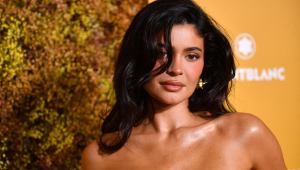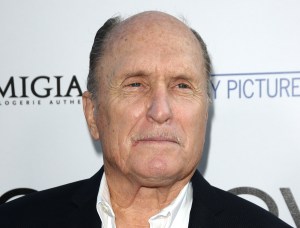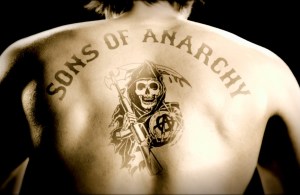After seven seasons, Queen Sugar is coming to an end. Since the drama series debuted on OWN in 2016, viewers have fallen more in love with the journey between Hollywood (Omar Dorsey) and Aunt Vi (Tina Lifford). The show begins with the death of the Borderlone family patriarch, Earnest, and how his family continues his legacy of family, love, and ownership with their sugar cane farm. Earnest’s three adult children – Nova, Charley, and Ralph Angel – deal with their own personal growing pains as they fight to keep the land and adjust their siblinghood afloat. But they rely on Earnest’s sister, Aunt Vi, to keep their emotions and family unit intact. While Aunt Vi deals with her own grief over the loss of her brother and reconciles her own trauma from her past, she leans on the love in her life, Hollywood.
Despite an age difference, the two embody what #RelationshipGoals truly are. Hollywood is a man’s man, but he allows Vi to lead equally. Vi continues to shine as the boss woman that she is, but she easily is able to fall into Hollywood’s arms at the end of each night because he’s a natural leader and protector. It’s a beautiful depiction, and an example of Black love that’s never been shown on the small screen before.
Videos by PopCulture.com
Ahead of the Season 7 premiere, Popculture.com spoke with Dorsey and Lifford about the trajectory of Hollywood and Aunt Vi, and what the imagery means for viewers. Watch the full interview above.
PC: Congratulations on an amazing series. We are so sad to see it go. But we appreciate what you’ve given us over the course of the show. So first and foremost, how did you guys react to the news that this would be its final season? And was it always known that the series would end after seven seasons? They do say that seven is the number of completion in our world.
OD: We really didn’t know. I think earlier, before the season started, way before the season started, Ava talked to all of us and said that this will be the completion, seven. So it was a bit bittersweet. It’s a show that there’s been a huge part of all of our lives since we’ve jumped onto it. But there comes a time where it’s time to. As the song says, “Take flight,” as Meshell Ndegeocello says in our theme. While it’s sad to see it go, we feel that we’ve told one amazing story.
Hollywood and Aunt Vi are America’s favorite couple. You guys know that by now. So when you guys first started this journey together, did you think that your characters would have such an impact as they’ve had on viewers and the whole idea of what Black love looks like?
TL: No, I didn’t. I didn’t. And I’ll tell you that again, when it comes to art, we don’t really know where the art’s going until it paints itself, right? And Queen Sugar has been painting itself from the very beginning. There’s no way when you look at the landscape, the visual landscape of these three beautiful siblings, we absolutely would expect for their storylines to blow up and to have all of the women in the world after Ralph Angel. And that absolutely happened. That happened as you would expect. But what was unexpected was to have the older couple, Hollywood and Vi, resonate to the degree that that storyline resonates. I think that was a surprise. And it became a stroke of color in the painting that really enriched the entire thing.
Omar, as a Black man, we feel that Hollywood is the mecca of what a husband and a partner should be. I actually sat through a screening with you recently at the NABJ Convention, and you were honest about saying how your character transformed how you are personally in relationships. How can you speak to that?
OD: Yeah. It’s written so well, right? You’re like, “Man, ain’t nobody like that for real.” But people really are like that. And maybe I sold myself short, not thinking that I could be that type of person. But the longer I played that character, and the more it started seeping into me, into my spirit, then I said, “This is exactly the man I want to be.” It’s great when life can imitate art sometimes. And when it’s something that’s written that well, you can see how one person can treat another person, whether it’s any kind of relationship that you have. And I’ve found myself being more and more like Hollywood every day. And now, that is the man goal, not relationship goal, that’s the man goal. That’s the Omar goal is to be more like Hollywood Desonier, and it’s working.
And for you, Tina, how has playing Aunt Vi transformed you even further? Because she’s so vivacious, she’s loving, but she takes no mess. And I think that it’s been a great example of what a matriarch looks like, who’s earned her respect within her core family, but she’s also living her best life at the same time. She hasn’t given up on herself and within that matriarch role.
TL: Yeah. I admire Vi for those reasons, right? I admire that she is still committed to living her best life and that she lives it as though her best life is in front of her with all the good that she has right this moment. And that is who Tina Lifford is, right? And so the opportunity to even attract a role that feels, when I say that it feels like a fit for me, it’s not just the character, but it is everything connected to it. To be able to envision what you want for your life, and then have it actually manifest and become a part of your life makes you pay even more attention to dreaming and to wanting and for reaching. And I think that this journey for me has been about both Tina Lifford and Violet reaching and dreaming and being willing to just constantly live on the edge of our beings, so that we can get as much from this lifetime as we can.
What do you guys feel that the relationship between Hollywood and Aunt Vi teaches its viewers?
OD: It somewhat shows what a real partnership looks like to me. As gregarious and vivacious as Aunt Vi is to the world, when she’s between those four walls with her and her husband, she’s a different person. She doesn’t have to take the lead. She doesn’t have to be the monarch, or not even a monarch, or the head as it were, as she is with the Borderlones. She can really lay her burdens by Hollywood’s riverside, right? So I think that, especially in my life, I have a girlfriend who’s a very powerful person. But when she comes home, she doesn’t want to have that. She wants to just, “Look, I just really just want to chill. And I don’t want to have all these decisions and all of this stuff to do. And I want to trust in you that you can be able to be the one to help strengthen this family.” And that’s one thing I think that Hollywood and Vi’s relationship can show us.
TL: I also love that these are two people, they both are strong. Their love makes room for one another. Their love makes room for both of them. And I love that Vi shows up as she is with Hollywood and vice versa. And so there is, I call it, a house shoe, house coat relationship where they feel so comfortable in one another’s presence that they are given permission to be who they are. And I think that is a wonderful thing to mirror for our society, for our culture. Be who you are, and let’s respect one another. And let’s let our love be large enough for both of us to live in it, to grow in it, and to be comfortable and comforted.
And what are you hoping that the legacy of Queen Sugar is?
OD: I hope that it shows that you can actually have Black family drama on television and that it doesn’t have to be hyperreality. We can have real people on television, and it can have an amazing fan base and tell great stories that are real and realistic and people who look like you. And you don’t have to have all this extra stuff added onto it. I’ve seen it in white shows from the beginning of time since they put television on, but it seems like our shows, we either have to have comedy or we have to have something that’s so unrealistic or something that’s so extra on that other side that we aren’t civilized. Of course, we are. We want to see each other on television. We want to see what we look like. And that’s one of the legacies that I hope that Queen Sugar leaves as we end it off.
Most Viewed
-

US television personality Kylie Jenner arrives for the Wall Street Journal Magazine 2023 Innovator Awards at the Museum of Modern Art in New York City on November 1, 2023. The annual awards, now in their 12th year, recognize talents from a range of disciplines, including fashion, art, literature, entertainment, architecture, design, technology, and philanthropy. (Photo by Andrea RENAULT / AFP) (Photo by ANDREA RENAULT/AFP via Getty Images)







